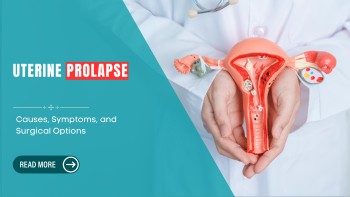Reproductive Health: Stress has become an
inevitable part of modern life, affecting both mental and physical well-being.
For women, stress can have a profound impact on reproductive health,
influencing everything from menstrual cycles to fertility and pregnancy
outcomes. Understanding how stress affects the reproductive system is crucial
for women seeking to maintain overall health and well-being.
How Stress
Affects the Menstrual Cycle
The Connection Between Stress and
Hormonal Imbalance
Stress triggers the
release of cortisol, a hormone produced by the adrenal glands. Elevated
cortisol levels can interfere with the normal functioning of the hypothalamus,
the part of the brain responsible for regulating hormones that control the
menstrual cycle. This disruption can lead to:
●
Irregular Periods: High stress levels
can cause periods to become irregular, with cycles that are shorter, longer, or
skipped altogether.
● Oligomenorrhea: In severe cases,
prolonged stress can lead to oligomenorrhea or amenorrhea (Scanty menses), the
absence of menstruation for an extended period.
● Expert Insight: If you are experiencing irregular periods or amenorrhea, it’s important to consult a healthcare provider. At Link Hospital in Gwalior, Dr Radha Agarwal, an experienced gynaecologist, offers personalized care to address menstrual irregularities and restore hormonal balance.
The Impact
of Stress on Fertility
Stress and
Ovulation
Stress can disrupt
ovulation, making it more difficult to conceive. When the body is under stress,
it may produce fewer reproductive hormones, leading to delayed or absent
ovulation. This can significantly reduce the chances of pregnancy.
●
Ovulatory Dysfunction: Chronic stress
can lead to ovulatory dysfunction, where the ovaries fail to release eggs
regularly.
●
Decreased Libido: Stress can also reduce
sexual desire, further complicating efforts to conceive.
Health Tip: Managing stress is essential for women facing challenges with conception. Link Hospital provides
comprehensive fertility evaluations and treatments, with expert guidance from
Dr Radha Agarwal, to help couples on their journey to parenthood.
Stress
During Pregnancy
Potential
Risks of Stress in Pregnancy
Stress during pregnancy
can have serious implications for both the mother and the developing baby. High
levels of stress are associated with:
●
Preterm Birth: Stress can increase the
risk of preterm labour, leading to premature birth.
● Low Birth Weight: Babies born to mothers
who experience high-stress levels during pregnancy may have lower birth
weights.
● Preeclampsia: Stress is also linked to
an increased risk of preeclampsia, a potentially dangerous condition characterized
by high blood pressure during pregnancy.
● Expert Care: At Link Hospital, we prioritize the health of both mother and baby. Dr. Radha Agarwal and the obstetric team provide comprehensive prenatal care, including stress management strategies to ensure a healthy pregnancy.
Stress and
Reproductive Disorders
Stress as a
Contributing Factor to Reproductive Disorders
Chronic stress has been
linked to the development and exacerbation of various reproductive disorders,
including:
●
Polycystic Ovary Syndrome (PCOS): Stress
can worsen symptoms of PCOS, such as irregular periods, weight gain, and
infertility.
●
Endometriosis: Women with endometriosis
may experience heightened pain and symptoms during times of stress.
●
Premenstrual Syndrome (PMS): Stress can
intensify the physical and emotional symptoms of PMS.
Managing Reproductive Health: If you are
managing a reproductive disorder, reducing stress is a key component of
treatment. Link Hospital’s multidisciplinary approach, led by Dr. Radha Agarwal,
includes advanced diagnostic and treatment options for conditions like PCOS and
endometriosis.
Managing
Stress for Better Reproductive Health
Practical Tips for Reducing Stress
Managing stress
effectively can have a positive impact on reproductive health. Some practical
strategies include:
●
Mindfulness and Meditation: Practices
like mindfulness and meditation can help reduce stress levels and promote
relaxation.
●
Regular Exercise: Physical activity is a
natural stress reliever and can help regulate hormones.
●
Balanced Diet: Eating a balanced diet
rich in nutrients can support overall health and reduce stress.
●
Sleep: Prioritizing sleep is essential
for managing stress and maintaining hormonal balance.
Comprehensive Care at Link Hospital: For
women experiencing stress-related reproductive health issues, Link Hospital
offers a holistic approach to care. Dr. Radha Agarwal provides personalized
treatment plans that include stress management techniques to support overall
well-being.
Why Choose
Link Hospital in Gwalior?
At Link Hospital, we understand the unique challenges that women face
when it comes to reproductive health. As the Best Hospital in Gwalior, we offer:
●
Advanced Diagnostic Tools: Advanced equipment for accurately diagnosing reproductive health
issues.
●
Expert Medical Team: Led by Dr Radha
Agarwal, our specialists provide compassionate and comprehensive care.
●
Holistic Approach: We emphasize the
importance of mental and emotional well-being, offering stress management
resources as part of our care.
Conclusion
Stress can have a significant impact on women’s reproductive health, affecting everything from menstrual cycles to fertility and pregnancy outcomes. Understanding the connection between stress and reproductive health is crucial for women seeking to maintain overall well-being. If you are experiencing stress-related reproductive health issues, consider consulting with Dr Radha Agarwal at Link Hospital in Gwalior. Our team is dedicated to providing the highest standard of care to help you achieve optimal health.










